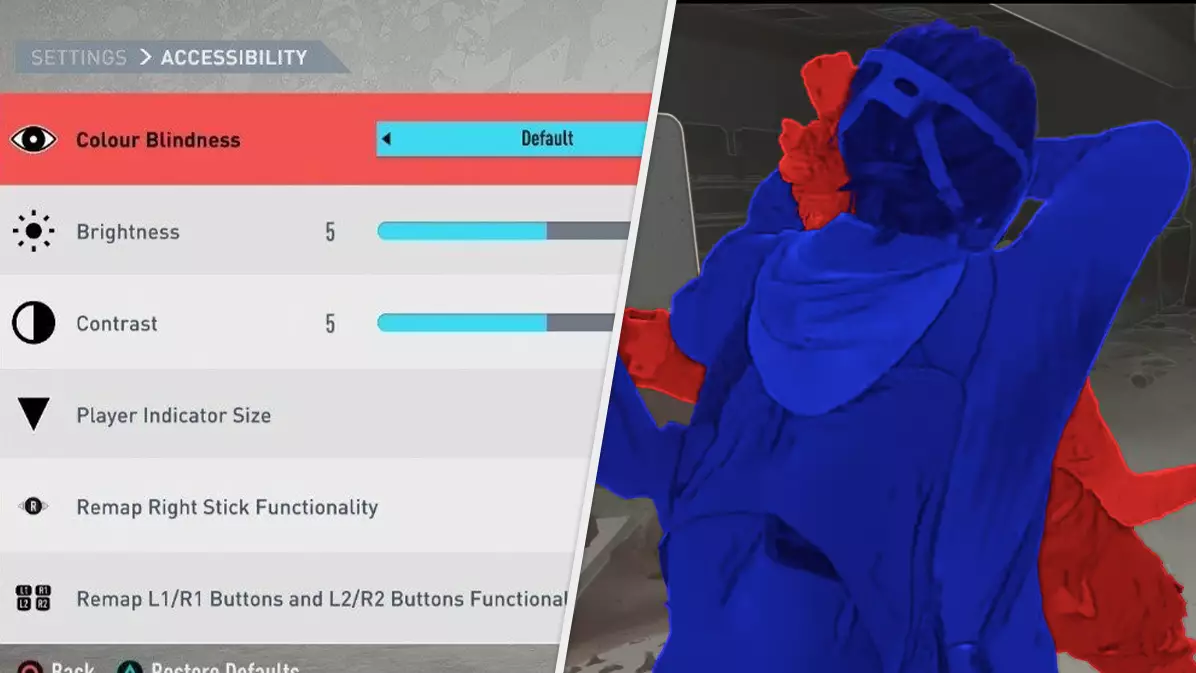
Taking place online on February 12th and 13th, Spawnpoint is an event designed to shine an essential light on accessibility in the video games industry. Organised by Austrian company Woop, Spawnpoint is welcoming speakers such as SightlessKombat, an accessibility consultant without sight; podcaster and streamer Pascal Dupré, who lives with a genetic skin disease; and Morgan Baker, an accessibility expert and deaf gamer. There will also be musical performances, and a close-up feature on British accessibility charity, Special Effect.
I spoke to Woop's CEO, Thomas Geißler, about Spawnpoint's intentions, and how the modern gaming industry, for all its improvements in the accessibility space, still isn't delivering experiences that are truly for all the players.
'Major games studios already do include some accessibility options - and it's getting more and more [common]" he tells me. "But sometimes you can't shake the feeling they're only implementing it for publicity reasons, or to reassure critics. There are a few outstanding exceptions, like The Last of Us Part II which can be played [by gamers] without any sight, but most studios seem to fail on including real accessibility options that go beyond font size, or colour settings."
Advert
---
Related: Watch Steve Saylor's video on The Last of Us Part II's accessibility features
---
Advert
On Spawnpoint's website - where you'll find a full schedule for the two-day event - there's a striking statistic: 46% of gamers have a physical disability (source). "That percentage is based on a survey conducted in 2008 by Information Solutions Group on behalf of PopCap Games," Thomas says. "It may seem like a large number, but I don't think that it is important enough for game developers to really consider too many options for disabled people, since that is also a question of money and effort put into research and development."
What Thomas is saying, then: despite a huge percentage of the gaming public experiencing some form of disability, developers are not thinking about this audience as much as they should be. "Since people with disabilities are still treated like a marginalised group in some aspects of society, I don't think that game studios really take them seriously enough as a possible target audience," he adds. "Therefore they fail to put enough money and effort in research regarding real and useful accessibility in games."
This is nothing new - in 2017 I spoke with accessibility consultant Ian Hamilton about the steps game developers needed to take in order to make their games more universally playable. "Accessibility in game development is an old field, stretching all the way back to the earliest days of the games industry," he told me, adding that "progress has been slow, certainly slower than other industries in terms of awareness and implementation."
Advert
What Thomas is telling me, in 2021, echoes what Ian did in 2017, and highlights just how slow this progress has been. At a time when so many of us can't see friends and family, being able to escape the everyday for an hour or two can be incredibly important - "if you cannot leave your house due to lockdown, you're able to leave it through playing some games and immerse into the game worlds," Thomas says. And to have that escapism, that mental break from so much real-world pressure, denied to you because of disability simply isn't acceptable.
Thomas comments that while "there are a lot of endeavors which should not be ignored that go far beyond subtitles and mapping opportunities" in games development right now, "this is not even close to enough for people with all different kinds of disabilities". Which is why an event like Spawnpoint is so important. If it changes one developer's perspective on the implementation of accessibility features, it's been a success, as that person will then relate their experience to others. Hopefully, in time - not too much of it - we'll start to see AAA and indie games alike including features that truly enable as many people as possible to enjoy them.
---
Related: For All The Players: A History Of Accessibility In Video Games
---
Advert
Gaming can break down barriers of prejudice, Thomas tells me. "Imagine you are sitting in front of the computer or a console, playing one of your favourite games together with some random people on the internet," he says. "You team up, exchange ideas about your strategy and even win some rounds! Over time you become really good friends and you really enjoy talking to and playing with them. Did it ever occur to you to ask whether they are disabled or not? I don't think so, because it doesn't matter!"
But if disabled gamers can't game, that can't happen. Spawnpoint, alongside celebrated charities like Special Effect in the UK and AbleGamers in the US, are playing their part in encouraging progress, and in making changes permanent. (Thomas adds that "there is also the Interactive Software Federation of Europe, which is not a charity, but helps raise awareness and provides statistical data"). But it's on all of us, really, to acknowledge where developers are letting gamers down, and asking them to do more without their actions being a box-ticking exercise for a marketing department.
Find the full schedule for Spawnpoint on its website, and more information on its speakers, aims and ambitions, and further statistics regarding disabled gamers.
Featured Image Credit: EA, Sony Interactive Entertainment/Naughty Dog
Topics: The Last of Us Part 2, Interview